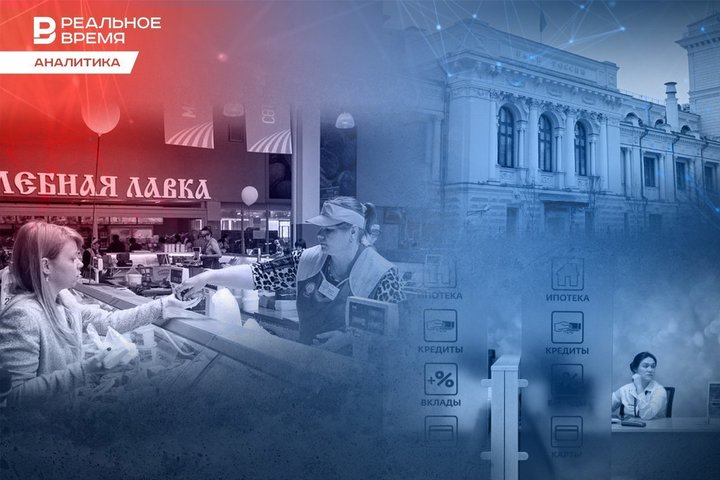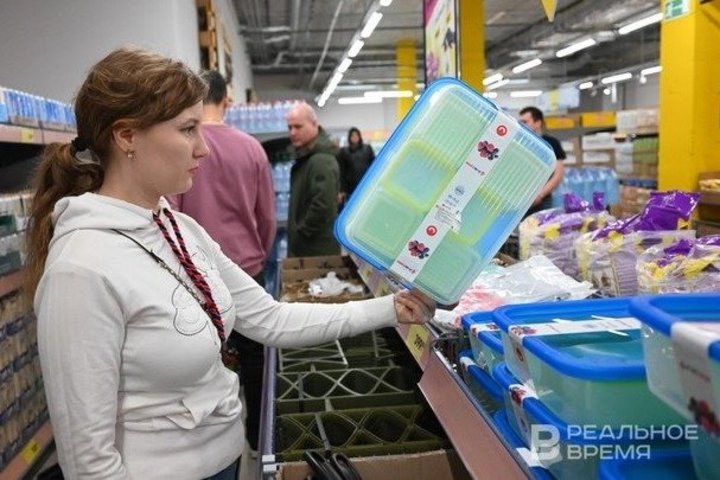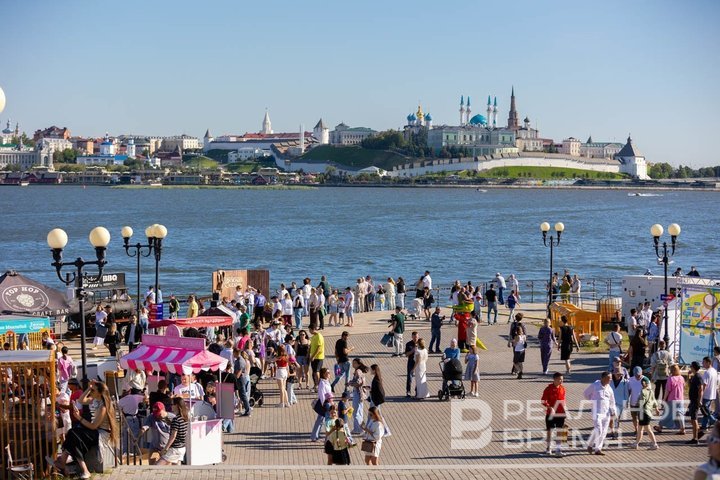Consumer boom is waning

The growth rate of the consumer market in Tatarstan has begun to decline compared to the dynamics of the first quarter of 2024, but the market is still overheated. In the last six months, retail in the republic has grown by more than 12% — to 750 billion rubles. In Russia as a whole, growth was 8.8%. At the same time, if food retail in the region grew moderately — by 5.4%, then the non-food retail sector continued to grow rapidly (+ 18.4%). However, despite the growth of real incomes of the population, as reported by the Russian Statistics Service, and a record deficit in the labour market in the history of Russia, consumption will continue to decline in the second half of 2024 — it will be affected by inflation and expensive loans, including the cancellation of mass preferential mortgages and the tightening other state mortgage programmes.
Retail is slowing down
The turnover of the consumer market in Tatarstan in the first half of 2024 increased by 12.3% and reached 750 billion rubles. The turnover of food retail increased by 5.4% -f to 334 billion, non-food retail increased by 18.4% — to 415.5 billion rubles. Despite the high figures compared to the first half of 2023, the dynamics of consumer market growth began to slow down: in the first quarter, it was 15.7%, while food retail grew by 7.5%, and non-food retail by 23.2%.
The turnover of the consumer market in Tatarstan for the first half of 2024 grew by 12.3% and reached 750 billion rubles
Compared to the first half of 2023, the number of trade enterprises in Tatarstan has decreased, catering and consumer services continue to grow.

The turnover of the catering market in the republic increased by 6.3% — to 37.2 billion rubles, but the market growth dynamics also slowed down significantly: in January-June 2024, catering grew by 20.6%. The turnover of household services to the population grew by 5.4% — to 34.8 billion rubles.
The slowdown in the dynamics of overall consumption is also recorded by the Centre for Macroeconomic Analysis and Short-Term Forecasting: taking into account seasonality, the monthly growth of the indicator slowed to 0.2% in June from 0.6% in May and 1.2% in April. Non-food products (cars and electronics in anticipation of the Central Bank rate hike) drove the consumption dynamics upward, while the consumption of services and food began to decline.
At the same time, the Russian Statistics Service continues to record rapid growth in incomes and salaries in Russia, as well as a new historical anti-record for unemployment. According to official statistics, the growth of real monetary incomes of the population in Russia accelerated in the second quarter and, despite the increase in inflation, reached 7.7% against 7.1% in the first quarter in annual terms. Real disposable incomes accelerated their growth to 9.6% against 6.4%, respectively, and as a result, they increased by 8.1% over the first half of the year.

At the same time, Russians began to apply for loan restructuring more often. According to the Central Bank, in the second quarter of 2024, the number of applications increased by 21%, to 915,000. The regulator cites that the population’s big debt caused this demand. The loan portfolio of borrowers grew more slowly — the figure increased by 6% compared to the beginning of the year, to 37 trillion rubles.
“Trends in Tatarstan are similar to the Russian ones”

Non-food retail grew more significantly for several reasons, he explains: “Firstly, there may be a low base effect: in the past, it showed lower growth rates, which could create the effect of higher growth in the current period.”
Non-food retail grew more significantly for several reasons, he explains: “Firstly, there may be a low base effect: in the past, it showed lower growth rates, which could create the effect of higher growth in the current period. Secondly, consumers may switch to durable goods, such as household appliances and electronics, especially after the pandemic period of restrictions. Thirdly, during some months, demand for non-food goods may be higher due to seasonal purchases.”
A further slowdown in the consumer sector can be inevitable if the current economic conditions persist. In his opinion, the trends in Tatarstan are similar to the Russian ones: the consumer market growth of 12.3% in Tatarstan is comparable to the national indicators of retail trade growth of 8.8%.
Forecasts for the consumer market of Tatarstan until the end of the year suggest a further slowdown in growth, unless significant changes in economic policy occur. “High inflation and rising prices may indicate signs of economic overheating,” says Kabakov. “Government measures to regulate the situation will be key to preventing this overheating.”
The market growth was influenced by the outpacing growth of wages

“The increase in the Central Bank rate significantly reduces the effective demand of the population for durable goods and housing. This will affect the volume of consumption, but it is necessary to take into account the outstripping growth of the population's income, which will most likely allow maintaining the existing volumes of purchases, excluding the housing market, where the situation is more complicated,” Shayakhmetov believes.
The current outstripping growth rates of the consumer market are also associated with the satisfaction of deferred demand, since previous years were quite difficult for the financial condition of the population, he reminds the audience.
By the end of the year, we should expect a decrease in the purchasing activity of the population, which will have a restraining effect on market growth. “However, given the increased financial stability of enterprises, we should expect a continuation of the increase in wages. The balance of profits and losses of organizations in Russia in January-May of this year increased by 13.6% compared to last year, which is higher than the inflation rate. Although it should be noted that in Tatarstan this figure decreased by 22.9%,2 the expert noted. “In addition, we should expect a decrease in activity in the housing market due to the increase in the cost of mortgage loans,” he recalled.